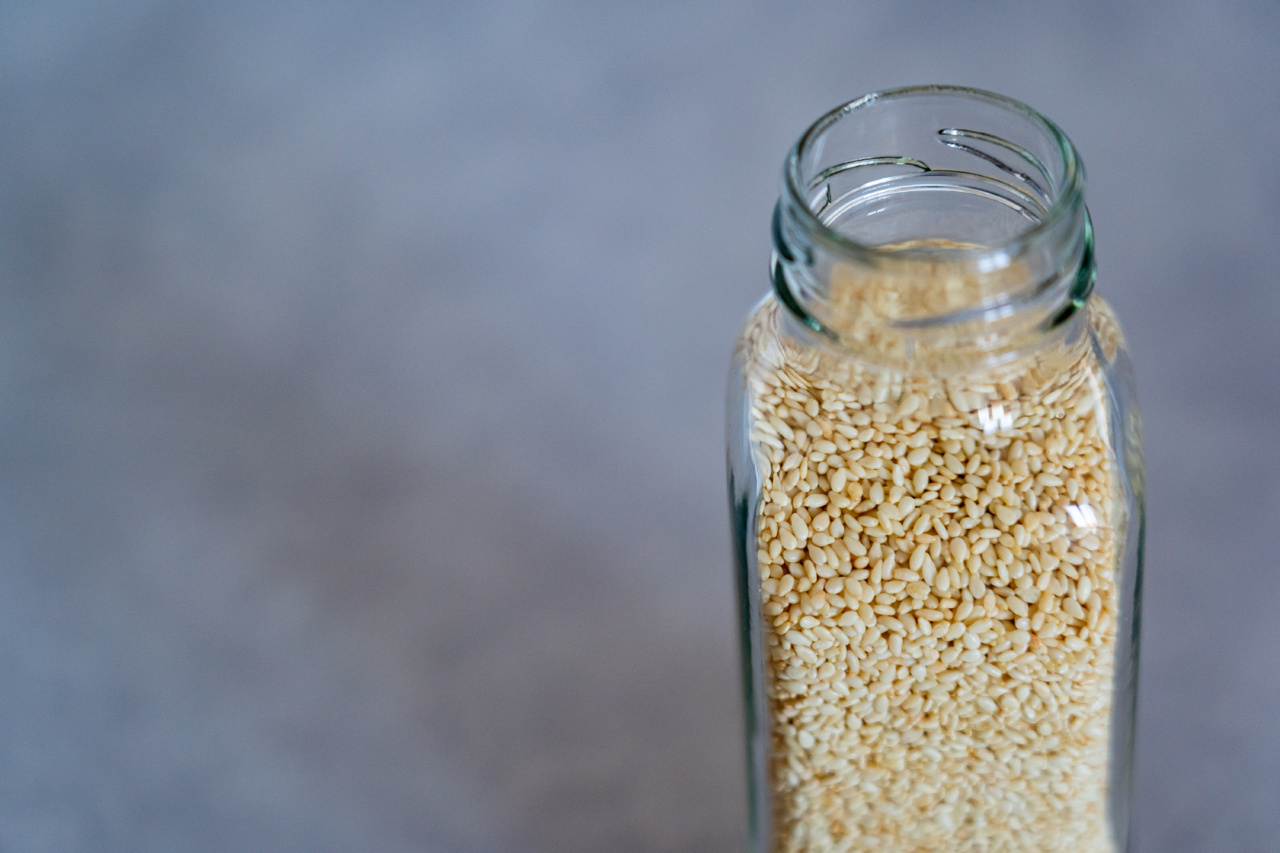Tahini, a rich and creamy paste made from ground sesame seeds, has been a staple in Middle Eastern cuisine for centuries. Beyond its delicious taste and versatility, tahini boasts an impressive array of nutritional benefits.
Packed with essential vitamins, minerals, and heart-healthy fats, this humble ingredient truly deserves its status as a nutritional powerhouse.
Rich in Vitamins and Minerals
Tahini is a fantastic source of various vitamins and minerals that our bodies need to function optimally. It is particularly rich in:.
Heart-Healthy Fats
Despite its creamy texture, tahini is actually a healthy fat. It is made up of predominantly unsaturated fats, which are beneficial for cardiovascular health when consumed in moderation.
These heart-healthy fats can help reduce bad cholesterol levels, lower the risk of heart disease, and improve overall heart function.
Tahini is primarily composed of monounsaturated fats, known for their ability to promote healthy blood lipid profiles.
These fats have been shown to decrease low-density lipoprotein (LDL) cholesterol, also known as “bad” cholesterol, while increasing high-density lipoprotein (HDL) cholesterol, known as “good” cholesterol. By maintaining a healthy balance between these two types of cholesterol, tahini can contribute to a healthier heart.
A Nutritional Boost for Vegans
Vegans often face challenges in obtaining certain essential nutrients from their diet since many of these nutrients are more commonly found in animal-based products.
However, tahini can be a game-changer for vegans, providing them with essential nutrients that might otherwise be lacking.
Tahini is an abundant source of plant-based protein, making it an excellent choice for vegans who need to ensure they meet their daily protein requirements.
Protein is crucial for building and repairing tissues, producing enzymes and hormones, and supporting overall growth and development.
Additionally, tahini is a notable source of amino acids, the building blocks of proteins.
Amino acids are essential for various bodily functions, including the synthesis of proteins, the formation of neurotransmitters, and maintaining a strong immune system.
For vegans struggling to find adequate sources of calcium and iron, tahini can be a game-changer. As mentioned earlier, tahini is rich in both calcium and iron, making it an ideal addition to a vegan diet in order to meet these nutritional needs.
Versatile and Delicious
Tahini’s nutritional benefits aside, it is also a versatile and delicious ingredient that can elevate numerous dishes.
Its unique flavor profile adds depth and complexity to both sweet and savory recipes, making it a beloved ingredient in various cuisines around the world.
Tahini can be used as a base for dressings and sauces, bringing a rich and nutty flavor to salads and roasted vegetables.
It is also a key ingredient in traditional Middle Eastern dishes such as hummus and baba ganoush, adding a creamy and indulgent texture.
Those with a sweet tooth can also enjoy tahini in desserts and baked goods. It can be used to make tahini cookies, halva, or even incorporated into brownie recipes for a delightful twist.
Tahini and Digestive Health
Tahini is not only delicious but also beneficial for digestive health. It contains significant amounts of dietary fiber, which is essential for maintaining a healthy digestive system.
Fiber adds bulk to the stools and helps regulate bowel movements, preventing constipation and promoting regularity. It also acts as a prebiotic, providing nourishment to the beneficial bacteria in the gut.
These friendly bacteria play a crucial role in maintaining a healthy gut microbiome, supporting digestion, and boosting overall immune function.
The fiber content in tahini also helps stabilize blood sugar levels. It slows down the absorption of sugar into the bloodstream, preventing spikes and crashes in blood sugar levels.
This can be particularly beneficial for individuals with diabetes or those struggling with insulin resistance.
How to Incorporate Tahini Into Your Diet
Tahini is incredibly versatile and can be incorporated into a wide range of dishes. Here are some creative ways to enjoy the nutritional benefits and deliciousness of tahini:.
Conclusion
Tahini is undoubtedly a nutritional powerhouse that deserves a place in your pantry. With its rich array of vitamins, minerals, heart-healthy fats, and digestive benefits, tahini brings both flavor and nourishment to your diet.
Whether used as a dip, dressing, or as an ingredient in your favorite sweet treats, tahini offers versatility and a burst of flavor that will delight your taste buds while supporting your overall health and well-being.




























